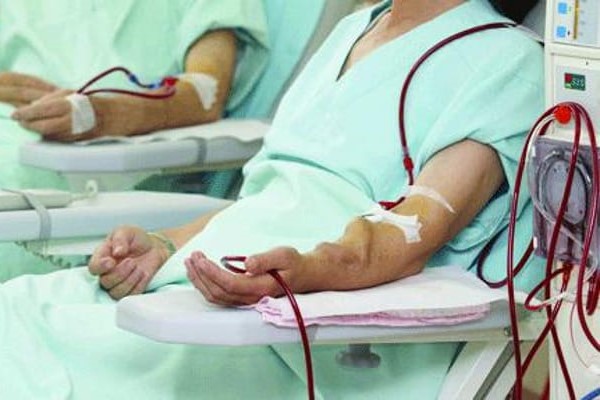
How to keep your kidneys healthy?
Kidneys health: chronic kidney disease is a progressive reduction in the kidney’s ability to eliminate waste and affects 10% of the population, to a greater or lesser extent
It is a “silent” disease and, in its early stages, does not present any specific symptoms indicating a malfunction of the kidneys
In order to be diagnosed, it therefore requires the full attention of the doctor as well as the patient.
Attention must be paid to pre-existing conditions, such as diabetes and hypertension, which can give rise to kidney disease, and to warning signs, such as sudden swelling of the legs or the appearance of a need to urinate at night.
Healthy kidneys: check your blood pressure
High blood pressure is a sign of kidney disease, so it is good to know your blood pressure level.
When you’re young, it’s measured at sports or occupational health checkups, but over the age of 40, you should remember to check your blood pressure regularly, especially if you have a family history of cardiovascular disease, hypertension, kidney disease or diabetes.
In addition, high blood pressure can cause worsening of kidney function, so it is important to treat it to obtain a level that your doctor will define as more adequate.
Check creatinine levels and do a urine test
A simple blood creatinine test and urine test are the tests that most often allow the diagnosis of kidney disease to be made and treatment to be undertaken, which in many cases can prevent or at least slow down the progression of the disease.
Kidneys health: keep fit and watch your weight
The kidneys are highly vascularised organs, so it is essential to reduce or abolish modifiable cardiovascular risk factors such as smoking, low physical activity, being overweight, and, as mentioned above, high blood pressure.
Regular physical activity helps to prevent overweight and control blood pressure and therefore reduces the risk of kidney disease.
It is sufficient to walk a few kilometres every day (e.g. getting off the bus a few stops before your destination), take the stairs, ride the exercise bike at home for 15-20 minutes.
And then keep your calorie intake proportional to your energy consumption.
Read Also:
Emergency Live Even More…Live: Download The New Free App Of Your Newspaper For IOS And Android
Colour Changes In The Urine: When To Consult A Doctor
Paediatric Urinary Calculus: What It Is, How To Treat It
High Leukocytes In The Urine: When To Worry?
The Colour Of Pee: What Does Urine Tell Us About Our Health?
Kidney Function Replacement Treatment: Dialysis


